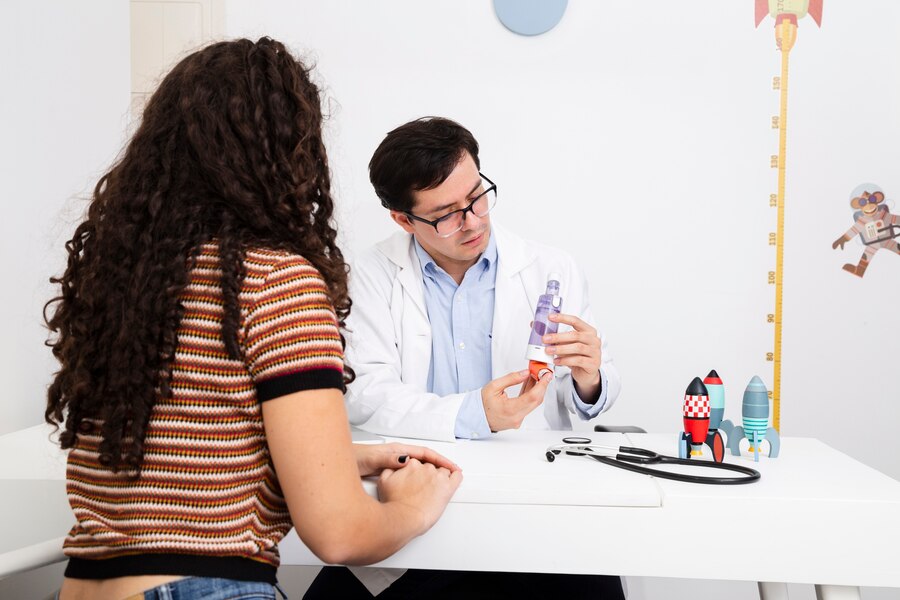Medication management is a critical aspect of healthcare, especially for individuals with chronic conditions, multiple prescriptions, or complex treatment plans. Improper medication use can lead to adverse drug reactions, ineffective treatment, and serious health complications.
Primary care physicians (PCPs) help patients navigate their prescriptions, ensuring that medications are used safely, correctly, and effectively. They educate patients on proper dosages, identify potential side effects, and monitor for drug interactions to enhance overall treatment success.
Why Medication Management is Essential
The Risks of Improper Medication Use
Improper medication use can lead to serious health risks, including:
- Adverse drug reactions (ADR), which may cause hospitalizations.
- Drug interactions, which can reduce medication effectiveness or increase toxicity.
- Missed doses, leading to ineffective treatment or disease progression.
- Overuse or underuse, affecting patient recovery and health outcomes.
How Primary Care Physicians Prevent Medication Errors
Primary care doctors help prevent these risks by:
- Reviewing all prescribed and over-the-counter medications.
- Checking for possible drug interactions.
- Adjusting dosages based on patient needs.
- Providing clear instructions for proper medication use.
The Role of Primary Care Physicians in Medication Management
Conducting Comprehensive Medication Reviews
During regular check-ups, PCPs conduct medication reconciliation, ensuring that:
- Patients are taking the correct medications as prescribed.
- No duplicated prescriptions exist.
- Medications are still effective and necessary for the patient’s condition.
Monitoring Side Effects and Adverse Reactions
PCPs regularly monitor for:
- Common side effects such as nausea, dizziness, or drowsiness.
- Serious reactions, including allergic responses or organ damage.
- Changes in effectiveness, adjusting medications as needed.
Managing Chronic Disease Medications
For patients with chronic conditions such as diabetes, hypertension, or arthritis, PCPs:
- Ensure medications are working effectively.
- Adjust treatment plans based on blood tests and vital signs.
- Educate patients on medication adherence and lifestyle changes.
Common Medications Managed by Primary Care Physicians

Chronic Disease Medications
PCPs manage long-term prescriptions for conditions such as:
- Hypertension – Blood pressure medications like ACE inhibitors or beta-blockers.
- Diabetes – Insulin or oral hypoglycemics.
- High cholesterol – Statins to prevent cardiovascular disease.
Pain Management Medications
Primary care physicians help with safe pain relief by:
- Prescribing non-opioid medications when possible.
- Monitoring opioid prescriptions to prevent misuse.
- Recommending physical therapy or lifestyle changes for pain relief.
Mental Health Medications
For patients with anxiety, depression, or ADHD, PCPs:
- Prescribe antidepressants or anti-anxiety medications.
- Monitor effectiveness and adjust doses as needed.
- Refer to mental health specialists when necessary.
The Importance of Regular Follow-Ups with a Primary Care Physician
Monitoring Long-Term Medication Use
PCPs schedule regular check-ups to:
- Assess medication effectiveness.
- Detecting potential long-term side effects.
- Make necessary adjustments to dosages.
When to Consult a Primary Care Physician
Patients should see their PCP if they experience:
- Unusual side effects from a medication.
- Changes in health status that may require adjustments.
- Difficulty managing multiple prescriptions.
FAQ
1. Why is medication management important?
Proper medication management ensures that prescriptions are effective, safe, and free from harmful interactions, reducing the risk of health complications.
2. How often should I review my medications with my PCP?
You should review your medications at least once a year or during routine check-ups, especially if you take multiple prescriptions.
3. Can primary care physicians help with over-the-counter medication safety?
Yes, PCPs provide guidance on safe OTC medication use and potential interactions with prescribed drugs.
4. What should I do if I forget to take my medication?
Consult your primary care doctor for guidance on missed doses. Some medications require immediate action, while others may require a new schedule.
5. How do PCPs help prevent medication side effects?
They monitor for side effects, adjust dosages, and recommend safer alternatives if needed, ensuring a personalized approach to treatment.
Conclusion
Medication management is a critical responsibility of primary care physicians. By ensuring safe, effective, and appropriate medication use, PCPs help patients maintain optimal health and prevent complications.
If you have concerns about your medications, schedule an appointment with our primary care physician for a comprehensive review and personalized guidance (469) 200-5974 or visit us https://scclittleelm.com/

